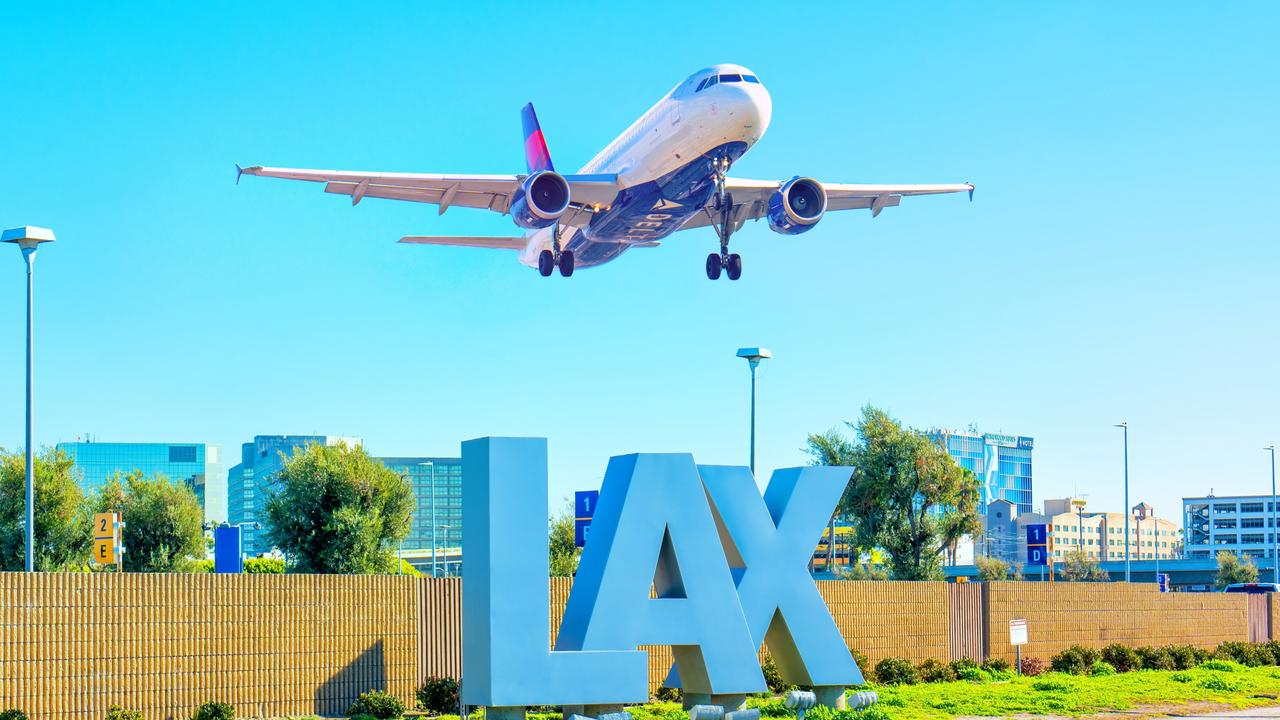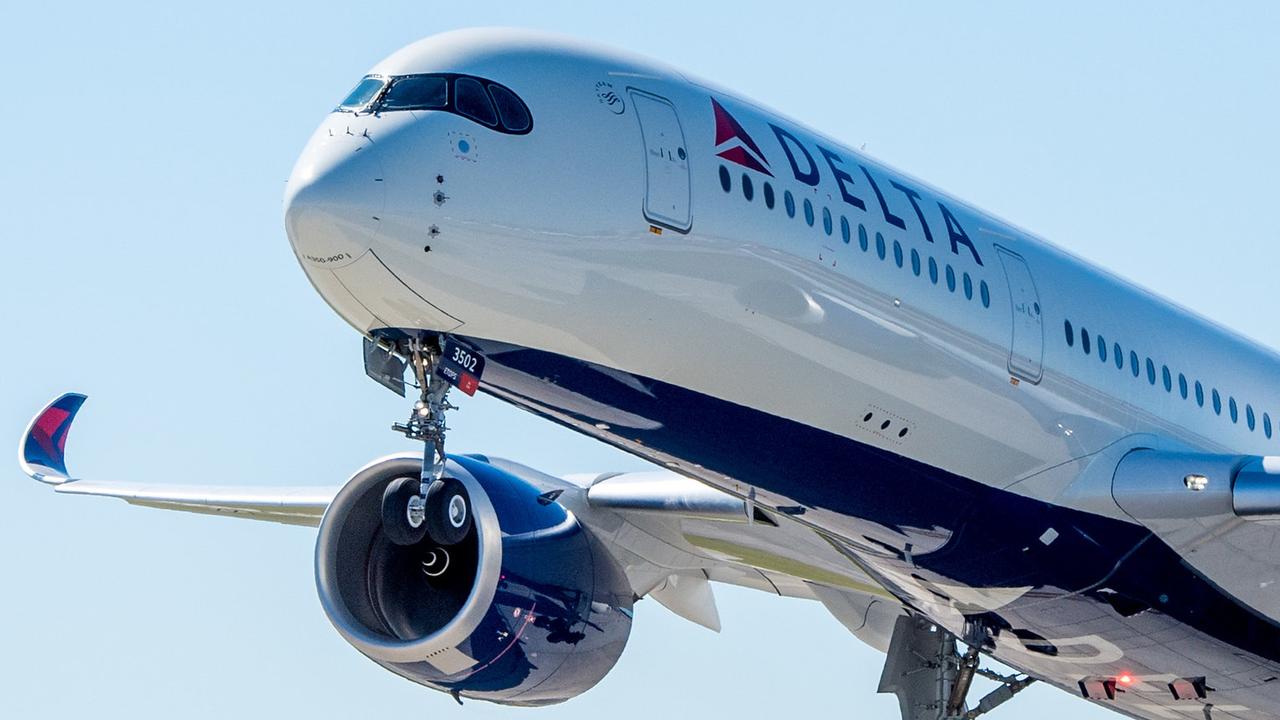Can Australia expect to win in a Trump trade war?
Canada and Mexico are writing the playbook in real time over how to navigate Donald Trump’s trade threats.
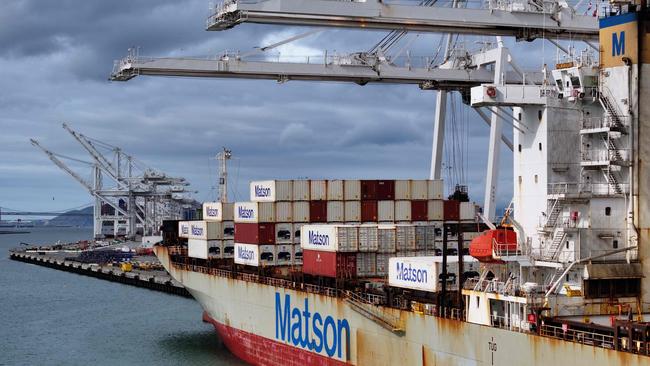
Companies
Don't miss out on the headlines from Companies. Followed categories will be added to My News.
Canada, Mexico and China are writing the playbook in real time on how to navigate Donald Trump’s trade war.
But Canada’s response, including a stepped tariff threat as well as giving Trump a “win”, will be one that is most studied by Canberra.
That Trump could turn on Canada, the US’s most important economic, security and geographic ally, baffled markets and up-ends conventions of business and geopolitics.
Trump’s opening negotiating tactic has always been about chaos. Putting Canada in his line of sight from the beginning has made markets, as well as the rest of the world, sit up and take notice.
Australia has deep political ties with the US and, importantly, runs a trade deficit, but there’s no reason this will provide protection from Trump turning on us at a whim.
If Canada is how he treats friends, imagine how he will treat countries or trading blocks like the EU that he trusts even less?
If the tariffs were merely about revenue raising, they’d already be in place. Trump’s pause for Canada and Mexico has confirmed market suspicions they were always about taking negotiations to the brink.
Trump has backed down for 30 days after taking the “win” of Canada committing to appoint a fentanyl tsar, do more on tackling drug cartels and bolster the border.
From Mexico, he got a commitment to bolster the border to prevent drug trafficking. However the big fight now looms with China. On Tuesday Trump’s deal deadline passed and a 10 per cent tariff was slapped on all Chinese goods. Chinese policymakers retaliated quickly with a targeted tariffs on up to 15 per cent on several US products, including on coal, LNG, oil and agricultural machinery. Talks with China are scheduled this week and a trade war is all but assured. Trump’s battle with the EU will surely follow.
Are there lessons for Australia?
Australia escaped tariffs in 2018, but there’s no guarantee it would escape a blanket tariff policy this time.
Our defence policy is almost entirely leveraged to the US. The AUKUS agreement will see sensitive US nuclear secrets shared in exchange for Australia buying US subs and building its own nuclear capability. That could upset Trump.
Elsewhere, there’s a trade imbalance on certain goods like lamb meat, beef or other agriculture exports that compete with Trump’s own producers.
Even Australia’s own huge trade relationship with China may be up for attack by Trump, with what could be seen as critical resources needed by the US sent into Asia.
Carriers like Qantas are doing the diplomatic hard yard, with a financial foot in both camps splitting its orders between Seattle-based Boeing and Airbus (Europe). So too players like steelmaker BlueScope and gas producer Woodside are investing heavily in US operations. Macquarie Group is a major investor in US infrastructure and energy.
Australia sold $33.6bn of goods to the United States, last financial year, while it imported $65.1bn.
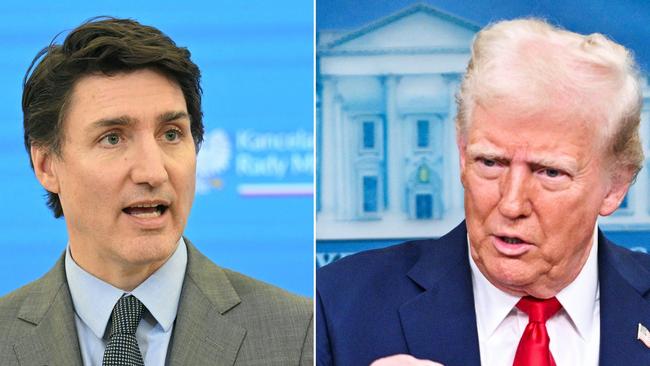
Critically, direct foreign investment is in balance between the two countries, with $206bn going to the US last year. US investors ploughed $210bn here, according to DFAT.
This Australia-US relationship pales against the Canadian two-way trade, where Canada sells about $US481bn annually to the US (more than 25 per cent of its GDP).
Canadian exports are deeply ingrained with US manufacturing and energy supply chains, with US carmakers and manufacturers of the northeastern states linked into Canada. In return, the US sells $US427bn to the Canadians, mostly in finished goods and refined petroleum.
One chief executive of a major ASX industrial tells The Australian it will be extremely important for Canberra to get the balance right in managing the political relationship with the White House.
“What he (Trump) is looking for is to show commitment to the US,” the CEO says.
Canada had plenty to lose from the tariff fight.
Had they come in, Canadian Prime Minister Justin Trudeau planned targeted tariffs on $US20bn worth of goods, which would scale up to additional tariffs on $US86bn of US imports after three weeks. Canada’s provinces were less organised, but had planned their own US contract bans.
Treasurer Jim Chalmers says Australia would have little appetite to deliver retaliatory tariffs on the US, if a trade war came this way.
Chalmers is giving away little what the Albanese government would do, saying we are “well placed”.
However, in this case, doing nothing could be the smart economic option. Australian consumers, rather than business, would likely be the biggest losers from a trade war.
Only 5 per cent of exports are shipped to the US, although only 1.6 per cent of overall US exports go to Australia.
Tourism, cars, trucks, industrial and mining equipment as well as aircraft and parts are the biggest imports from the US.
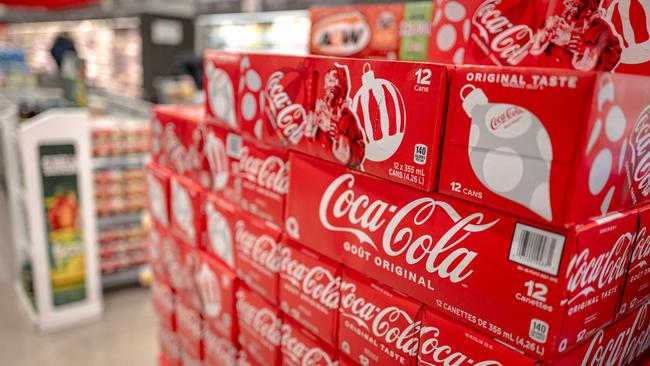
Our trade is fungible, while a weaker exchange rate from any economic strains would be a net benefit for exports. Australia too has resources the rest of the world needs.
The bigger fight the world is watching is between the US and China. Doing nothing is not an option. A trade battle between the two would hurt global growth (and therefore demand for Australian resources).
Indeed, a 10 per cent slowdown in global trade could wipe 1.2 per cent from Australian GDP, according to OECD numbers. That’s significant when Australian growth is forecast at between 2 per cent to 2.4 per cent for the coming two years.
Perversely, it could lower the cost of imports into Australia, with 20 per cent of goods consumed by Australia coming directly from China. These goods previously heading to the US would flow here.
All this would present a new headache for Canberra after spending the past five years trying to diversify trade away from China. A global trade war will just bring the two countries closer again.
CBA surge
Ray David of newish fund Blackwattle Investment Partners has labelled Commonwealth Bank’s stunning share surge of the past year a case of “irrational exuberance”. He says the bank, which is scheduled to deliver its interim results in coming weeks, is simply the most expensive bank in the world.
“It’s PE (price to earnings ratio) is at a 3.5 standard deviation from its historical average...this valuation level is not sustainable,” David says. CBA has gained nearly 40 per cent in the past year and at $157.70 currently just off recent all time highs. That’s reason enough for David to stay away.
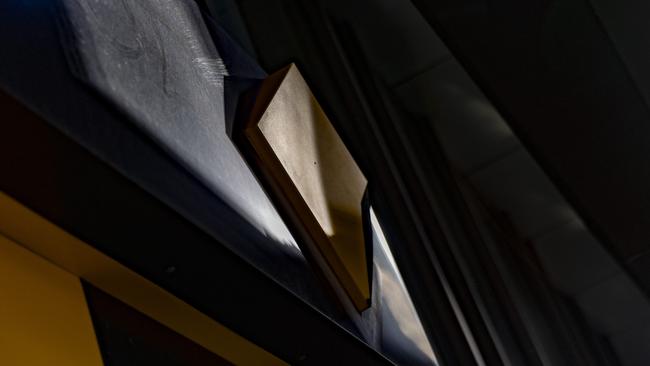
David, a former long-time Schroders portfolio manager and now head of Blackwattle’s large cap portfolio, is instead looking at healthcare, mining and industrials as the place likely to deliver the most value in relation to historical valuations. He has been buying names like Resmed, CSL, James Hardie and Transurban. Just over a year ago David was bearish on CSL.
Those ASX sectors in where valuations are high relative to history are technology and financial and consumer discretionary.
Retail in particular is ripe for stock shorting opportunities, David believes. “We are entering a period of sluggish sales growth. We can see more discounting. There is margin pressure due to higher labour and rent costs, and we see elevated valuations,” he says.
Shares in retailers have been getting a boost with the market betting on the impact of a string of interest rate cuts from the Reserve Bank. However, David says it could be getting ahead of itself, particularly as sales growth unable to keep pace of cost growth. This leaves discretionary retail ripe for some of the biggest falls
-
Power boost
Despite ongoing financial stresses of the owner of Bell Bay’s manganese smelter in Tasmania, the state’s energy supplier Hydro Tasmania has locked in a ten-year power supply deal with the operator Temco.
Sanjeev Gupta’s Liberty Group, which also owns the Whyalla Steelworks in South Australia, acquired Temco from administration four years ago. Gupta has been battling creditors to his global businesses, and late last year in London pushed ahead with a major restructuring of his operations.
The Tasmania deal follows Rio Tinto recently committing to operate its aluminium smelter also in Bell Bay until at least 2030 and find ways of having the plant fulled by low cost green energy. Rio is already off to a head-start, with the bulk of Tasmania’s energy supplied by hydro. However, the demand peaks come from the coal-fired plans of the mainland.
Hydro Tasmania Acting CEO Erin van Maanen declined to disclose details, but said the generator “had reached a mutually beneficial outcome enabling us to continue our long-running relationship with the smelter”.
The Bell Bay manganese plant employs around 300 people. The four big industrial users in Bell Bay – Rio Tinto, Temco, Nyrstar and Norske Skog – account for 60 per cent of Tasmania’s electricity use.
eric.johnston@news.com.au
Originally published as Can Australia expect to win in a Trump trade war?


